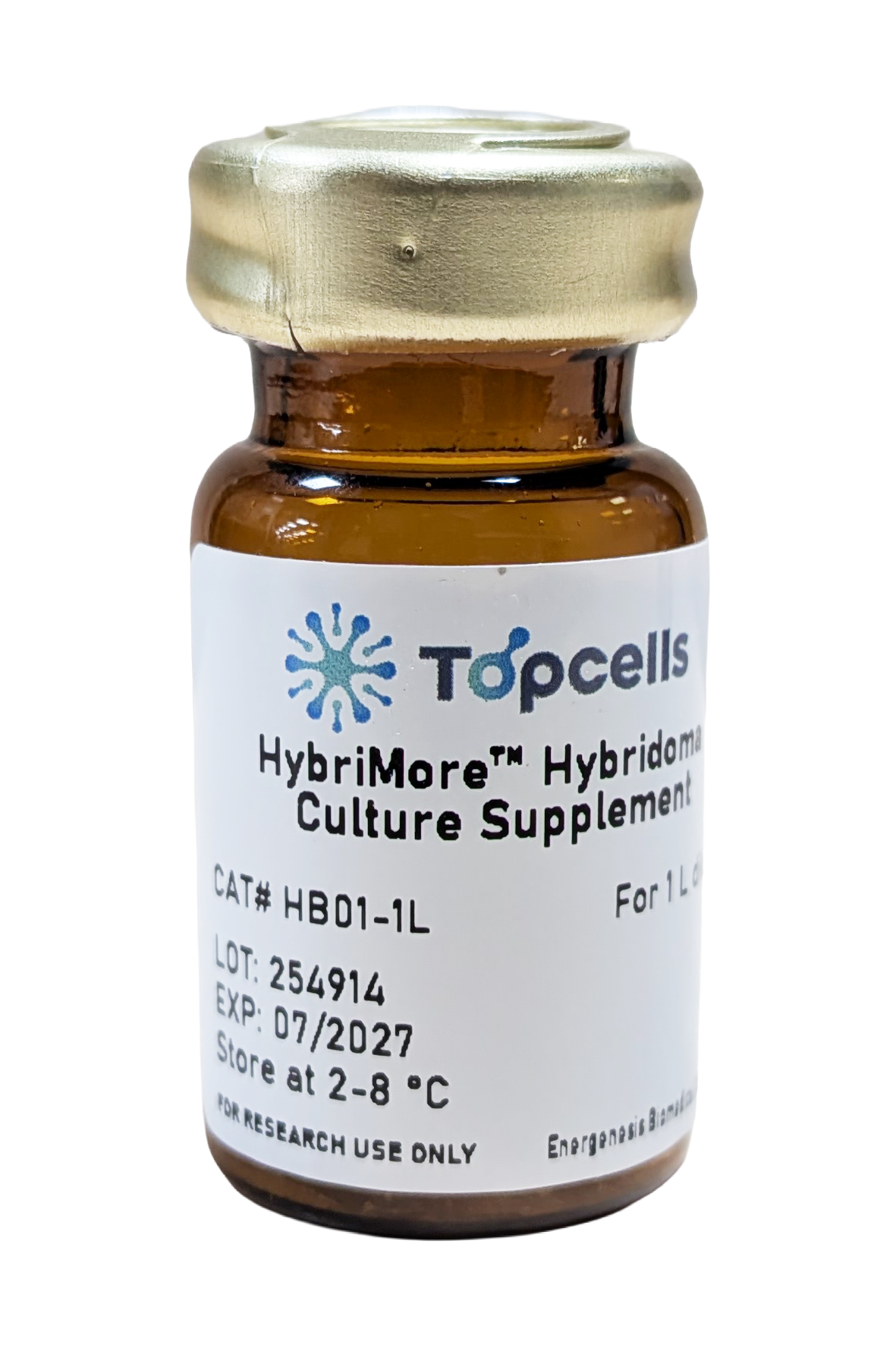Product
HybriMore™ Hybridoma Culture Supplement
HybriMore™ Hybridoma Culture Supplement is a unique, chemically defined supplement designed for hybridoma culture media. It provides essential components after cell fusion, significantly enhancing cloning efficiency and improving the survival rate of hybridoma cells, even under serum-free or low-serum conditions.
With its protein-free, chemically defined formulation, HybriMore™ minimizes background interference, making it easier to identify hybridoma clones with high antibody productivity during the screening process.
Highlights
-
Increases cloning efficiency and cell survival rate
-
Growth-promoting supplement with defined chemical components and concentrations
-
Better signal-to-noise ratio in hybridoma supernatants for mAb screening
Generation of mAb Through Hybridoma Technology with HybriMore Cell Culture Supplement
- For optimal efficiency, use HybriMore™ from post-cell fusion through antibody production.
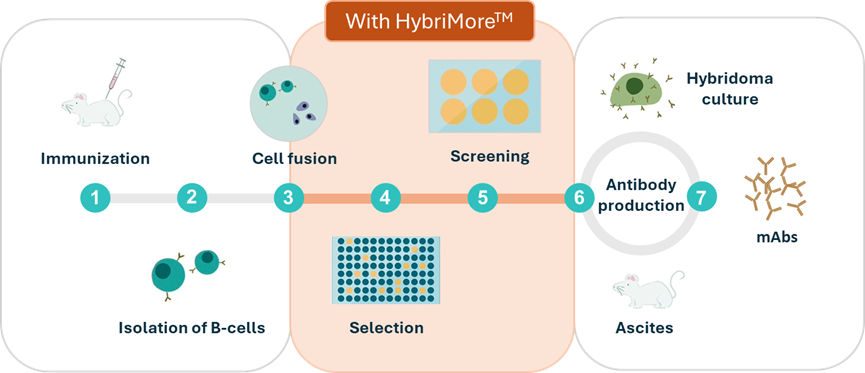
Preparation of hybridoma cells (general protocol):
1. The BALB /cJ mice were immunized with the desired antigen.
2. Mouse splenocytes were fused with myeloma cells.
3. Fused cells were gently resuspended in DMEM containing the desired concentration of fetal bovine serum, HAT, and HybriMoreTM.
4. Supernatants of hybridomas in 96-well plates were screened by enzyme-linked immunosorbent assay (ELISA).
5. Selected hybridoma clones were isolated by limited dilution.
6. The mAbs were obtained from hybridoma culture or mouse ascites.
7. Monoclonal antibodies were purified on Protein G-Sepharose columns.
Order Information

Note: For testing, please contact the local distributor for the sample size product #HB01-S (for making a 0.1 mL stock solution and for a 100 mL cell culture medium).
Storage
Store at 2–8 °C
Product grade:
For Research Use Only
Product Detail
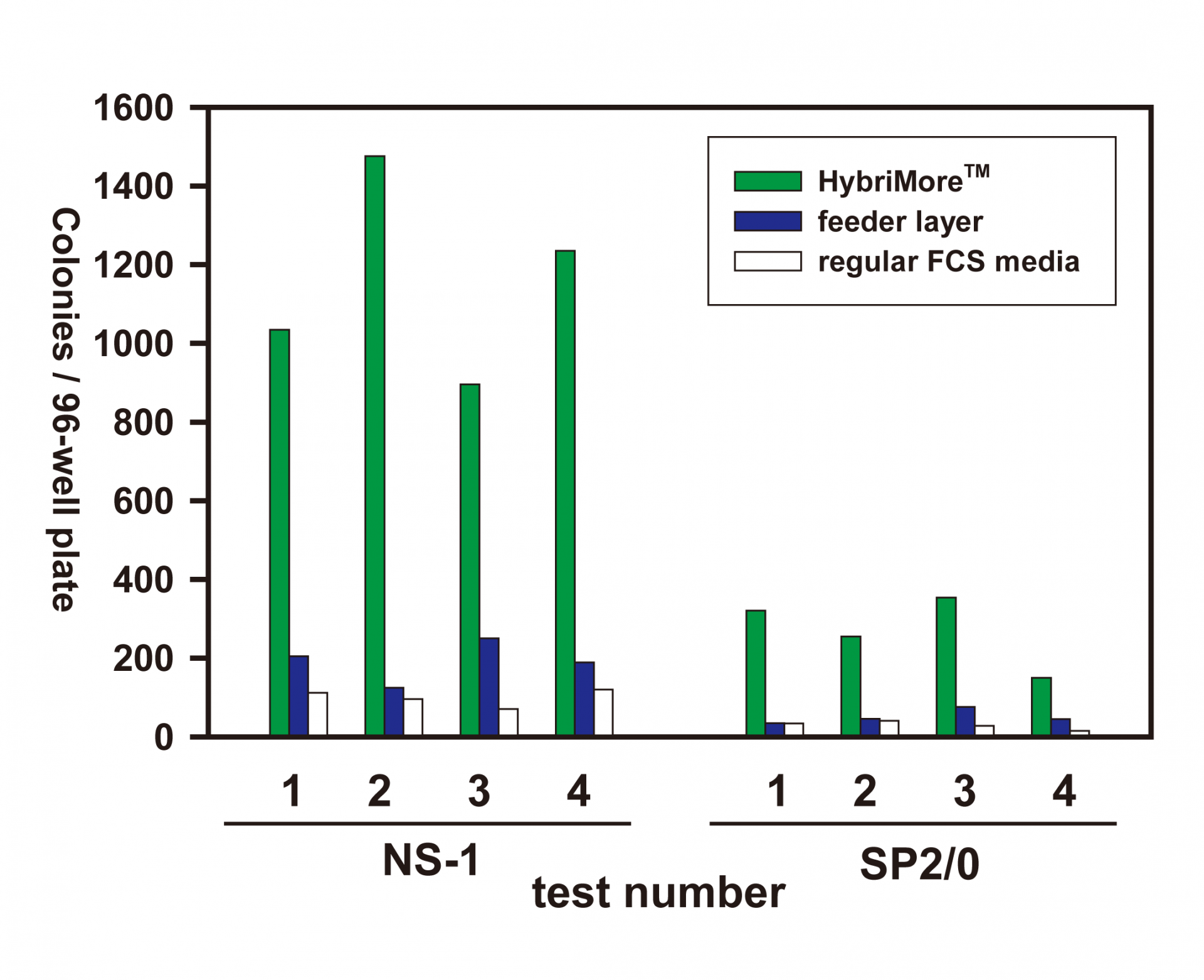
Figure 1. Comparison of the cloning efficiency of the newly fused hybridoma cells.
Newly PEG-fused hybridoma cells were plated into 96-well plates containing FCS media with HybriMore™ (green bars), FCS media with a feeder layer (blue bars), or regular FCS media (white bars). Hybridoma cells were subjected to HAT selection 14 days after cell fusion. The number of viable hybridoma colonies was visually counted under a microscope. Two mouse myeloma fusion partners, NS-1 and SP2/0, were evaluated using four independent fusion experiments with freshly prepared mouse spleens.
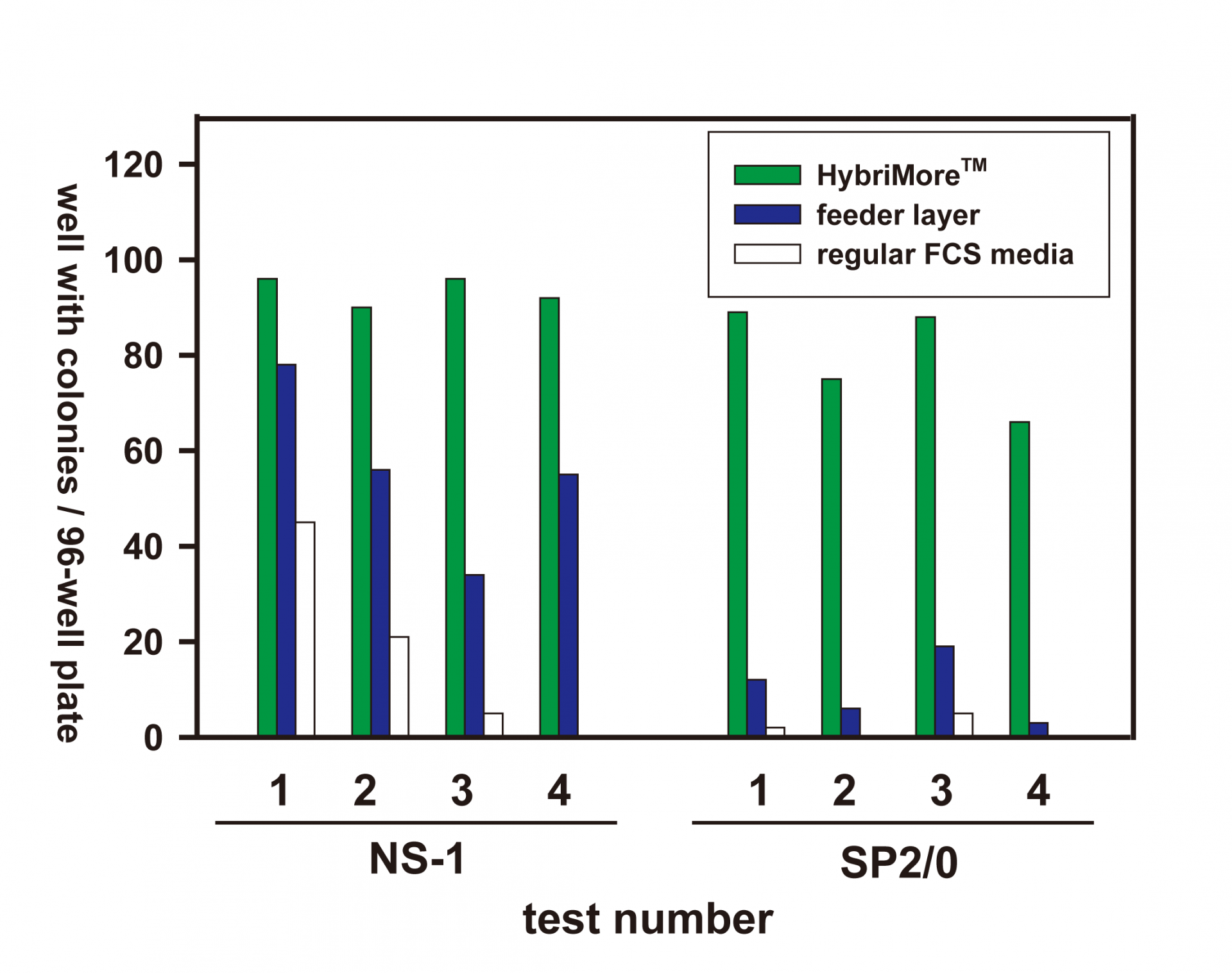
Figure 2. Comparison of the successful rate of monoclonizing hybridoma cells.
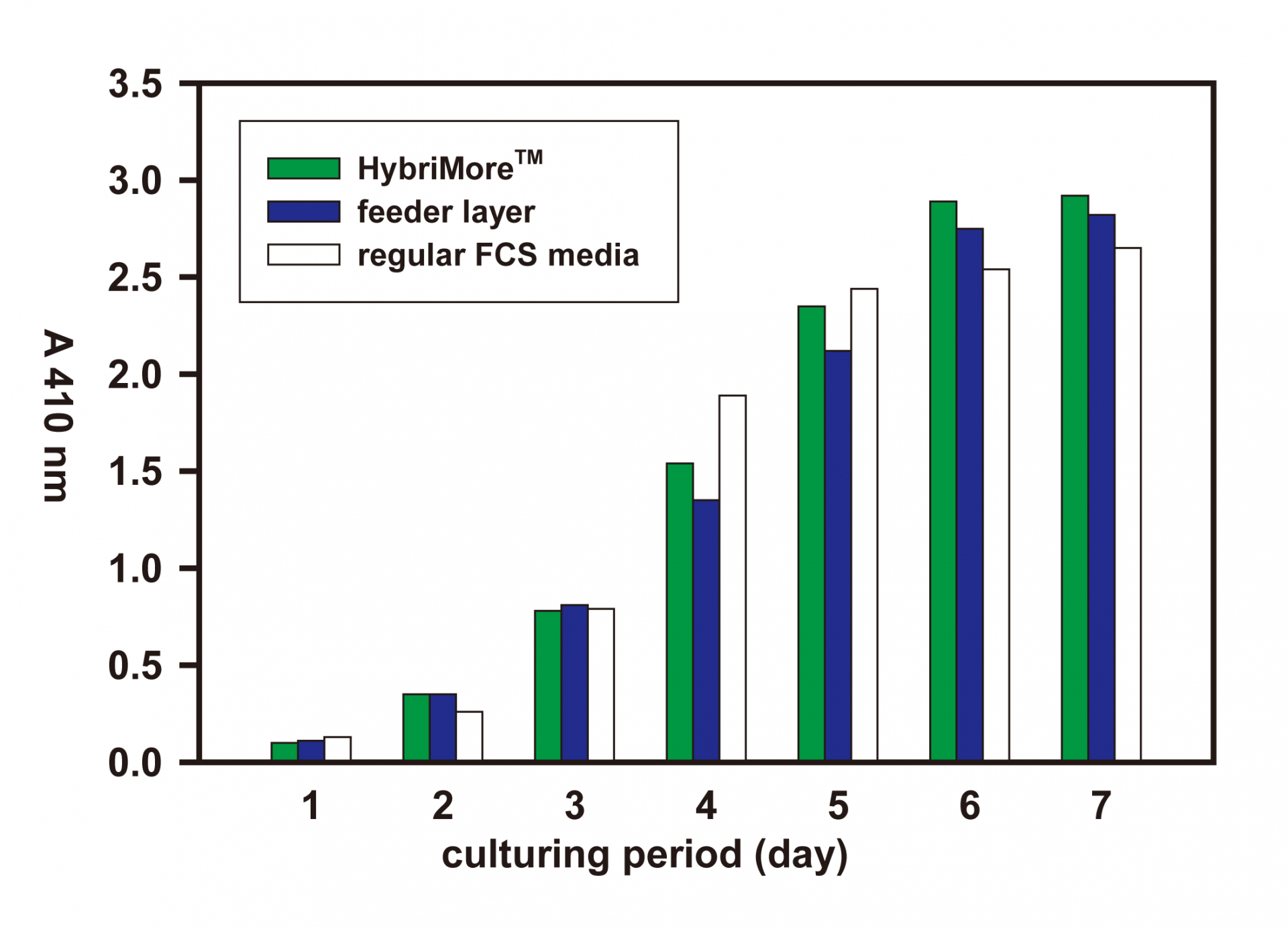
Figure 3. Comparison of antibody secretion titers.
A hybridoma cell clone (anti-human transferrin, L3B5) was cultured for seven days in media containing FCS with HybriMore™ (green bars), FCS with a feeder layer (blue bars), or regular FCS (white bars). Supernatants were harvested and antibody titers were measured by ELISA.
Reference
- Li, CJ., Huang, PH., Chen, HW. et al. Development and characterization of mouse monoclonal antibodies targeting to distinct epitopes of Zika virus envelope protein for specific detection of Zika virus. Appl Microbiol Biotechnol (2021).
- Lai, Guan-Chun, et al. "Neutralization or enhancement of SARS-CoV-2 infection by a monoclonal antibody targeting a specific epitope in the spike receptor-binding domain." Antiviral Research 200 (2022): 105290.
- Su, Shih-Chieh, et al. "Structure-guided antibody cocktail for prevention and treatment of COVID-19." PLoS Pathogens 17.10 (2021): e1009704.
- Lu, Ruei-Min, et al. "Monoclonal antibodies against nucleocapsid protein of SARS-CoV-2 variants for detection of COVID-19." International Journal of Molecular Sciences 22.22 (2021): 12412.
- Ko, Shih-Han, et al. "Monoclonal antibodies against S2 subunit of spike protein exhibit broad reactivity toward SARS-CoV-2 variants." Journal of Biomedical Science 29.1 (2022): 108.
